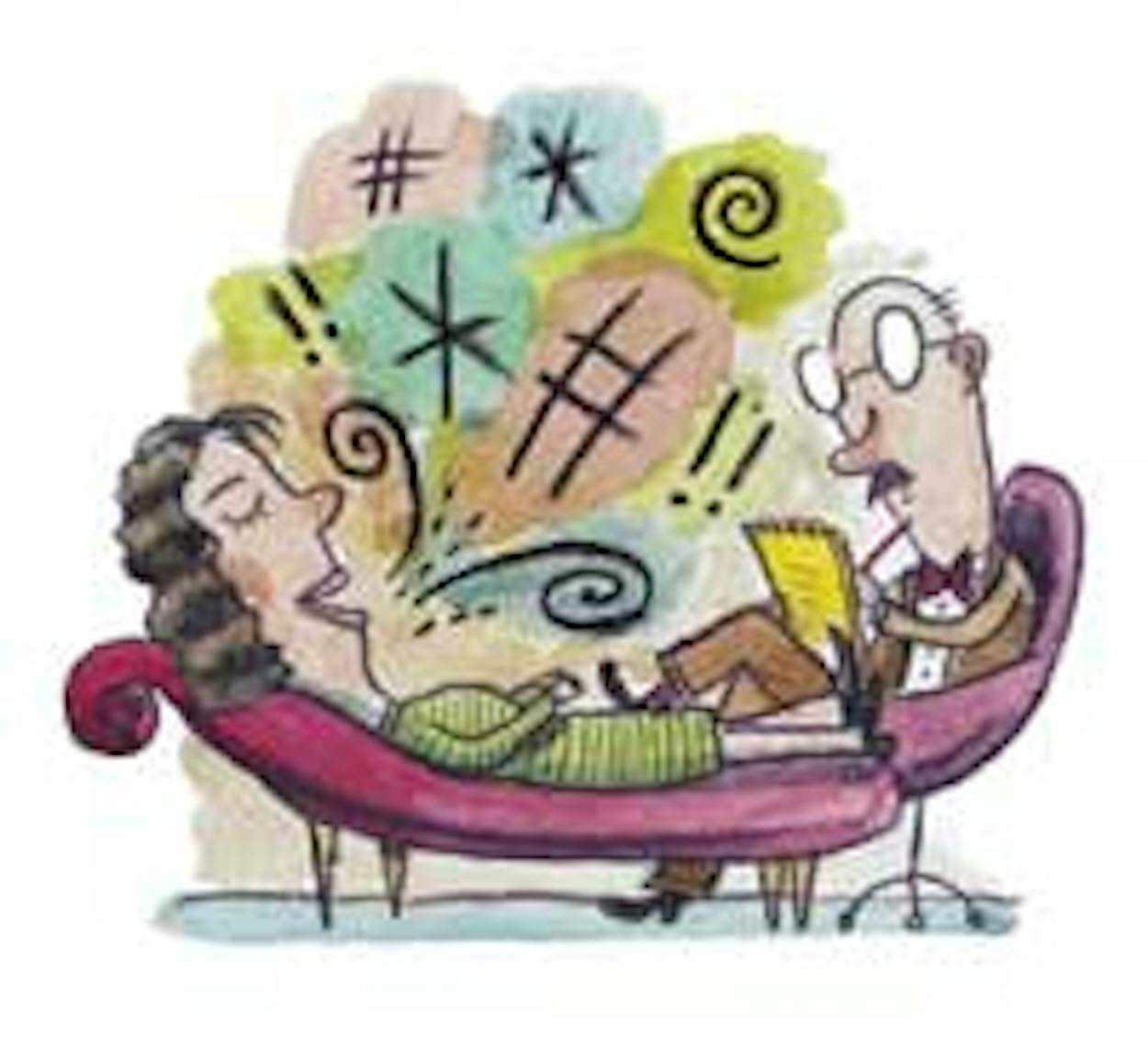It’s good to have a potty mouth for president. When George W. Bush uttered a certain seven-letter word over an open mike last year, only the media seemed to care. Certain religious groups overlooked their candidate’s casual profanity, and Bush himself didn’t seem a bit red-faithed. As a fellow swearer, I welcome this linguistic loosening, and I say it’s about damn time. Folks today can’t seem to swear off swearing. Yes, it can be offensive, but so are many other aspects of modern life. I’d rather my neighbors’ dogs not leave me yard fritters, but they do. Why do I swear? Let me count the effing ways. For one, it’s therapeutic: When a driver cuts me off in traffic, or when I spill coffee all over my niece’s crayon masterpiece, a “Mercy me” or “Gee whillikers” just won’t do. As Mark Twain said, “In certain trying circumstances, urgent circumstances, desperate circumstances, profanity furnishes a relief denied even to prayer.”
Also, swearing is funny; it’s the residual third grader in me. Certain vulgarities just sound perversely Seussian (“Would you do it with a duck?”). Of course, deliberate cursing isn’t nearly as funny as the accidental kind. Once, my sister-in-law Mary Anne, a confirmed nonswearer, tried to say two things at once—”the whole shebang” and “the whole kit and caboodle”—only to come out with “the whole shit, kit, and caboodle.”
Finally, profanity is an old Texas tradition; past masters include a couple of Johnsons, President Lyndon Baines and former Dallas Cowboys coach Jimmy. But cussing isn’t a male-only activity. Even Helen Corbitt, the Neiman Marcus chef and tastemaker, noted, “I learned to swear in Texas.”
I didn’t realize how foulmouthed I’d become until I had kids. (Placatory parental note: My own folks never swear, except Mother did say “Hell’s bells!” once when she inadvertently shut the cat in the dryer.) When my son Parker was two, he was playing with his action figures and, in his little piping voice, had one declare to the other, “I say, ‘Good God,’ but you say, ‘Oh, dammit!'” I quickly initiated a cleanup campaign, only to overhear this exchange between Parker and his three-year-old brother:
Parker: Look, that car has damage on it.
Philip: Don’t say “damage.” It’s a bad word.
Parker: Oh, you’re right. I meant to say “poopface.”
Today, I’m happy to report that my children do not swear—nearly as much I do. I admit I turn a deaf ear to their use of terms so common as to be inoffensive: “pissed off,” for example, and “bullshit.” (I especially enjoy variations on the latter, an indispensable Americanism, and I’d like to propose “catshit,” which means bullshit so egregious you ought to cover it up.)
In conclusion, I propose some simple rules of rough language, so the delicacy-challenged residents of the moral high ground can coexist in peace:
Rule One: Keep it short and quiet. A few blue words in a private conversation conducted at a reasonable decibel level shouldn’t offend any but the staunchest of prigs. But loud, sustained public profanity is a different matter. That was the case with the 25-year-old Michigan canoeist convicted in 1999 of swearing in front of children: After cursing for several minutes, he found himself up a different creek.
Rule Two: Avoid blasphemy. People are more sensitive about religious beliefs than references to bodily parts or acts. And God doesn’t need any of our damn(ing) help.
Rule Three: Emphasize elimination over procreation. The former is lowest common denominator; the latter is adults only.
Rule Four: Nonswearers, exercise a bit of tolerance. Isn’t freedom of speech worth it? Remember, to air objectionable language is human; to ignore is divine—and besides, it keeps you from looking like a major-league, uh, poopface.








